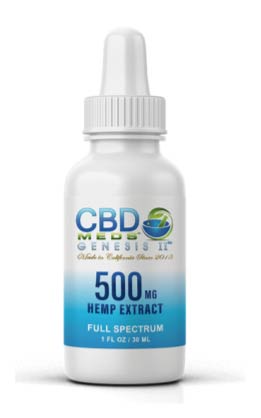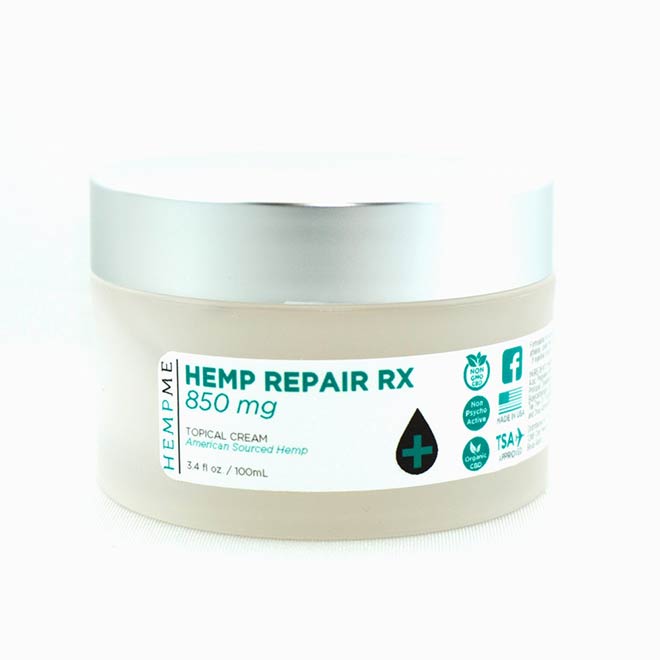Companies made unsupported claims that their oils, balms, gummies, coffee, and other goods could treat serious diseases such as cancer and diabetes
Note: The FTC will host a media call-in on this announcement with
Andrew Smith, Director, Bureau of Consumer Protection
Date: Thursday, December 17, 202
Time: 11:00 a.m. ET
Call-in: 844-291-6360; Access Code: 389969
Call-in lines, which are for media only, will open 15 minutes prior to the start of the call.
The Federal Trade Commission today announced the first law enforcement crackdown on deceptive claims in the growing market for cannabidiol (CBD) products. The FTC is taking action against six sellers of CBD-containing products for allegedly making a wide range of scientifically unsupported claims about their ability to treat serious health conditions, including cancer, heart disease, hypertension, Alzheimer’s disease, and others.
The FTC is requiring each of the companies, and individuals behind them, to stop making such unsupported health claims immediately, and several will pay monetary judgments to the agency. The orders settling the FTC’s complaints also bar the respondents from similar deceptive advertising in the future, and require that they have scientific evidence to support any health claims they make for CBD and other products.
“The six settlements announced today send a clear message to the burgeoning CBD industry: Don’t make spurious health claims that are unsupported by medical science,” said Andrew Smith, Director of the FTC’s Bureau of Consumer Protection. “Otherwise, don’t be surprised if you hear from the FTC.”
The crackdown, Operation CBDeceit, is part of the Commission’s ongoing effort to protect consumers from false, deceptive, and misleading health claims made in advertisements on websites and through social media companies such as Twitter.
Each case the FTC is announcing today is described below:
Bionatrol Health, LLC
According to the FTC’s complaint against Utah-based companies Bionatrol Health, LLC and Isle Revive, LLC, and two former managers and owners, since at least December 2019 the respondents sold a CBD oil to consumers on two websites. Among other things, the respondents allegedly claimed without substantiation that their CBD product is safe for all users, treats pain better than prescription medications like OxyContin, and prevents and treats age-related cognitive decline and chronic pain. The respondents also claimed, without scientific evidence, that CBD oil is “medically proven” to improve a variety of conditions, according to the FTC’s complaint. In addition, the FTC alleges the respondents deceived consumers who ordered one bottle of their CBD oil by changing the order to five bottles without consumers’ consent.
The proposed administrative order settling the FTC’s charges prohibits the respondents from making certain prevention, treatment, or safety claims about dietary supplements, foods, and drugs without human clinical testing to substantiate the claims. It also requires competent and reliable scientific evidence for other health-related product claims, and prohibits the respondents from misrepresenting the cost of any good or service and from charging consumers without their express, informed consent. Finally, it requires the corporate respondents and individual respondent Marcello Torre to pay $20,000 to the FTC and to notify consumers of the Commission’s order.
Epichouse LLC (First Class Herbalist CBD)
 According to the FTC’s complaint against Utah corporation Epichouse, LLC, which operated under several names, including First Class Herbalist, and the company’s founder and owner, John Le, since at least September 2019 the respondents sold several CBD products on their website, including oils, a pain-relief cream, coffee, and gummies.
According to the FTC’s complaint against Utah corporation Epichouse, LLC, which operated under several names, including First Class Herbalist, and the company’s founder and owner, John Le, since at least September 2019 the respondents sold several CBD products on their website, including oils, a pain-relief cream, coffee, and gummies.
Among other alleged unsupported claims, Epichouse and Le promoted CBD as safe for all users, able to treat pain better than prescription medications such as OxyContin, and able to prevent a wide range of serious conditions, including cancer, diabetes, and heart disease. In their advertising, they also falsely claimed that CBD is scientifically proven to improve many serious health conditions—including chronic pain and hypertension—and provide neurological benefit—such as preventing age-related cognitive decline—according to the FTC’s complaint.
The proposed administrative order settling the FTC’s charges prohibits the respondents from making certain prevention, treatment, or safety claims about dietary supplements, foods, and drugs, unless they have the human clinical testing to substantiate the claims. It requires them to have competent and reliable scientific evidence when making any other health-related product claims. Finally, the order requires the respondents to pay $30,000 to the FTC and notify consumers of the Commission’s order.
CBD Meds, Inc.
 According to the FTC’s complaint against CBD Meds, Inc.; G2 Hemp, Inc.; and Lawrence Moses, a/k/a Lawrence D. Moses, Jr., individually and as an officer of the corporate entities, the two companies advertised CBD oil on their website and on YouTube. In their ads, the FTC contends, the Winchester, California-based firms made a number of false or unsubstantiated claims, including that CBD effectively treats, prevents, or mitigates serious diseases and conditions like artery blockage, cancer, glaucoma, autism, and schizophrenia, among many others. The respondents also falsely represented that some of the efficacy claims were scientifically proven or that the U.S. government has confirmed the health benefits of CBD.
According to the FTC’s complaint against CBD Meds, Inc.; G2 Hemp, Inc.; and Lawrence Moses, a/k/a Lawrence D. Moses, Jr., individually and as an officer of the corporate entities, the two companies advertised CBD oil on their website and on YouTube. In their ads, the FTC contends, the Winchester, California-based firms made a number of false or unsubstantiated claims, including that CBD effectively treats, prevents, or mitigates serious diseases and conditions like artery blockage, cancer, glaucoma, autism, and schizophrenia, among many others. The respondents also falsely represented that some of the efficacy claims were scientifically proven or that the U.S. government has confirmed the health benefits of CBD.
The proposed administrative order settling the FTC’s charges prohibits the respondents from making certain prevention, treatment, or safety claims about dietary supplements, foods, and drugs, unless they have the human clinical testing to substantiate the claims. More broadly, it requires them to have competent and reliable scientific evidence when making any other health-related product claims. Finally, the order requires the respondents to notify consumers of the Commission’s order.
HempmeCBD
 According to the FTC’s complaint against EasyButter, LLC, also d/b/a HempmeCBD, and its owner and officer Michael Solomon, since at least January 2018, the respondents have sold CBD products on their website, including CBD-infused shea butter, gummies, lozenges, honey sticks, vape pens, and oils. The complaint alleges that HempmeCBD claimed its CBD products could treat or cure serious ailments like cancer-related symptoms, substance abuse, and AIDS. The complaint alleges HempmeCBD lacked the scientific substantiation for such health claims and falsely claimed to have studies showing CBD is effective at treating autism.
According to the FTC’s complaint against EasyButter, LLC, also d/b/a HempmeCBD, and its owner and officer Michael Solomon, since at least January 2018, the respondents have sold CBD products on their website, including CBD-infused shea butter, gummies, lozenges, honey sticks, vape pens, and oils. The complaint alleges that HempmeCBD claimed its CBD products could treat or cure serious ailments like cancer-related symptoms, substance abuse, and AIDS. The complaint alleges HempmeCBD lacked the scientific substantiation for such health claims and falsely claimed to have studies showing CBD is effective at treating autism.
The proposed administrative order settling the FTC’s charges prohibits the respondents from making certain prevention, treatment, or safety claims about dietary supplements, foods, and drugs, unless they have the human clinical testing to substantiate the claims. It also requires them to have competent and reliable scientific evidence when making any other health-related product claims. Finally, it requires the respondents to pay the FTC $36,254 and to notify consumers of the Commission’s order.
Reef Industries, Inc.
According to the FTC’s complaint against California-based Reef Industries, Inc.; Cannatera, Inc.; AndHemp, Ltd., and the companies’ three principals, the respondents have sold a variety of CBD products directly to consumers on their website and Twitter accounts since at least January 2019 and misrepresented the health benefits of CBD. The FTC alleges that the respondents made unsubstantiated claims that CBD can prevent, cure, mitigate, or treat diseases and serious health conditions, including Alzheimer’s disease, arthritis, autoimmune disease, and irritable bowel syndrome. The complaint also alleges the respondents falsely claimed that studies or scientific research prove that CBD is effective at treating, curing, or mitigating these diseases and conditions.
The proposed administrative order settling the FTC’s charges prohibits the respondents from making certain prevention, treatment, or safety claims about dietary supplements, foods, and drugs, unless they have the human clinical testing to substantiate the claims. More broadly, it requires them to have competent and reliable scientific evidence when making any other health-related product claims. Finally, it requires them to pay the FTC $85,000 and notify consumers of the Commission’s order.

Steves Distributing, LLC
According to the FTC’s complaint against Steves Distributing, LLC, d/b/a Steve’s Goods; and the company’s CEO Steven Taylor Schultheis, since beginning operations in 2018, the respondents have sold a variety of products containing both CBD and cannabigerol (CBG), which, like CBD, is a non-psychoactive compound derived from hemp. The company advertises its CBD and CBG products, including tinctures, gummies, capsules, topical balms, suppositories, bath balms, and coffee, on its website and through social media companies like Twitter.
The FTC alleges that the respondents claimed, without adequate substantiation, that their CBD and CBG products are effective alternatives to prescription medications and treat a wide range of diseases and serious health conditions, including Alzheimer’s disease, cancer, and diabetes. The complaint also alleges the respondents falsely claimed that their CBD and CBG products have antibacterial properties, prevent or reduce the risk of heart attacks, strokes, and other diseases, and that certain of these claims were supported by scientific evidence.
The proposed administrative order settling the FTC’s charges prohibits the respondents from making certain prevention, treatment, or safety claims about dietary supplements, foods, and drugs, unless they have the human clinical testing to substantiate the claims. More broadly, it requires them to have competent and reliable scientific evidence when making any other health-related product claims. Finally, it requires the respondents to pay the FTC $75,000 and notify consumers of the Commission’s order.
The Commission votes approving each of the six administrative complaints and proposed consent orders were 5-0, with Commissioner Rohit Chopra and Commissioner Christine S. Wilson issuing separate, concurring statements. A complete list of respondents can be found in the complaint for each respective case.
The FTC will publish a description of the consent agreement package in the Federal Register soon. The agreement will be subject to public comment for 30 days after publication in the Federal Register after which the Commission will decide whether to make the proposed consent order final. Instructions for filing comments will appear in the published notice. Once processed, comments will be posted on Regulations.gov.
NOTE: The Commission issues an administrative complaint when it has “reason to believe” that the law has been or is being violated, and it appears to the Commission that a proceeding is in the public interest. When the Commission issues a consent order on a final basis, it carries the force of law with respect to future actions. Each violation of such an order may result in a civil penalty of up to $43,280.
The Federal Trade Commission works to promote competition and to protect and educate consumers. You can learn more about consumer topics and report scams, fraud, and bad business practices online at ReportFraud.ftc.gov. Like the FTC on Facebook, follow us on Twitter, get consumer alerts, read our blogs, and subscribe to press releases for the latest FTC news and resources.
CONTACT INFORMATION